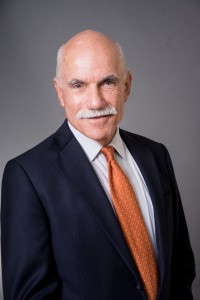Founder To CEO
THE FOUNDER TO CEO TRANSITION
Kevin McBurney is the Vancouver Office Managing Director and Senior Client Partner at Korn/Ferry International, the world’s largest senior executive search firm. With his extensive experience in C level and Board searches across North America, he has seen countless Founders grapple with company growth and leadership transitions.
http://www.kornferry.com/consultants/KevinMcBurney/
From Elizabeth’s Live Interview with Kevin
1. From what you’ve seen, what are some common qualities that distinguish those entrepreneurs who have been able to significantly and successfully grow their businesses?
“That’s so unique to each circumstance. It’s someone’s belief in their unique service or product. Other qualities are focus, intensity, drive and energy, but it’s intellectual energy. I don’t mean running in a marathon – although most of these people do that as well!”
2. At what point in a business should a founder step back and think carefully about whether he or she is still the best person to run the business as CEO?
“There is a definitive moment there. It’s usually when someone in their life has the courage – usually someone working closely with them: an advisor, board member, colleague – to say: “you’re not capable of running this anymore. It’s grown beyond you.” Businesses can sometimes suffer from founderitis. It takes a good degree of personal introspection on the part of some individuals to sit in front of the mirror and say: ‘I need help I really should be behind the scenes. I should be the CTO.’ Bill Gates story is that story.
These guys have to surround themselves with exceptional and competent professional managers, even if the business is relatively small. That driven, intensely focused individual who thinks he or she has the world’s best product ever has to sit down and say: “I need help to take this further.” A lot of it has to do with how strategic the individual is, whether it’s their skillset. And that is where the board comes in ultimately.”
3. Can you describe some of the company conflicts and struggles you have seen as founders pass on the CEO role – willingly or unwillingly – to others?
“One thing I’ve seen quite regularly is founders struggling to hire the right people. They will come to us sometimes and they’ll back off because they don’t want to pay a fee for a CEO search. They might think: ‘I can do it myself’ or ‘I can’t afford a six figure fee to find a CEO.’ Hiring is the single biggest struggle founders go through. They typically surround themselves with friends and buddies with whom they think they can along with easily, manage or direct. That is a serious mistake.
When founders are hiring CEOs, there is often no clear definition of the Founder’s role versus the CEO’s role. The CEO’s role is to runs the business. Yet, the Founder has been doing this: ‘I built the business; I own the business.’ Then the CEO comes in and gets a piece of the business – that’s usually the only way you’ll attract a competent CEO. As I say to founders: you need to have 22 dinners and just as many lunches with the potential CEO. You need to be finishing each other’s sentences before you sign on the dotted line. You have to get to know each other – your principles and values, your spouses and families. There has to be synergistic thinking between the two of you, so you each know what the other can do and agree on what the other will do. The two of you need to set a course with a plan.”
4. What can company leaders – the Founders, their replacement CEO’s, the Board… – do to minimize company and market chaos during these power transitions?
“The Founder and the CEO will be sitting on the Board, so what can the Board to minimize company and market chaos? First off: if it’s a private company, they can stumble along, make mistakes and perhaps get there and fail. But the CEO may be coming on because the company is thinking of going public. Chaos is likely when companies go public too early because they are desperate to raise money. What is important, I think, is that the Board does not urge an IPO just for the reasons of raising money. IPO’s are expensive.
The Board’s guidance is key to minimizing chaos particularly during leadership transition. I just prepared a deck on CEO succession this morning. I have a client – close to a billion dollar business – whose CEO has just been seriously hurt. My client is a major shareholder and there is no one to run the business, no succession in place. I was just talking to another business where the CEO is 63 and there is no succession there. There are a number of roles a Board plays, but a key one is planning out CEO succession. Boards are often lax in this arena.
A nominating or governance committee shoud really have CEO succession on its agenda – either at every Board meeting or at the last one of every year. It’s not just looking at the top 4 or 5 people. It’s looking at where are our emerging leaders in the business? Who are they? Do we know what they need from a development perspective to be successful? The CEO succession plan is key if you want to minimize chaos.”
5. What proactive leadership advice would you offer to entrepreneurs who are building businesses which, if successful, will grow exponentially?
They must surround themselves with very smart people. It goes back to what I said about not just their friends and family. The business will grow if smart people are leading it. But it can’t be led and grown by just one individual. Most entrepreneurs know that, it’s executing that is key.
The Korn Ferry Institute
The Korn Ferry Institute site is worth following for its rich, current content on the C suite and Board management. Here, for an example, is a particularly relevant article for many Founders: Why Companies Need Skeptics.
http://www.kornferryinstitute.com/briefings-magazine/fall-2014/why-companies-need-skeptics
Thinking Ahead
Even if you’re just starting out: think about what you will want to do about leadership when your business is of a certain size.
a. How will you groom or seek leaders for your own C team? What succession planning can you do even at this point?
b. What do your primary motives now (wealth, control, freedom, impact?) predict about how you might react to a time when there are solid business reasons for you to step down as an active CEO of your company?



